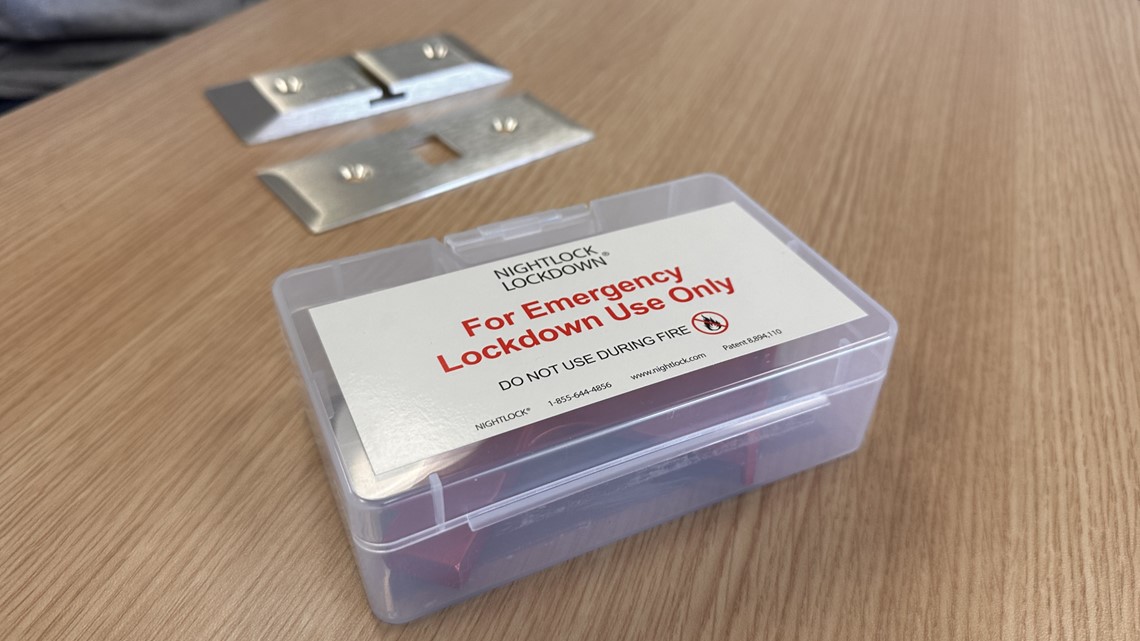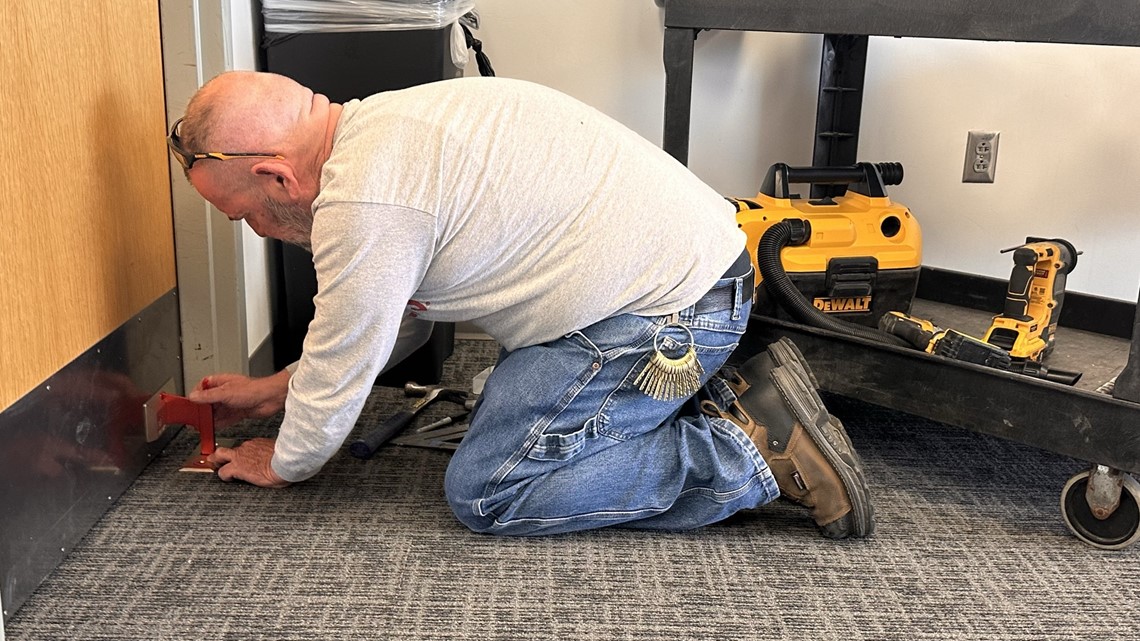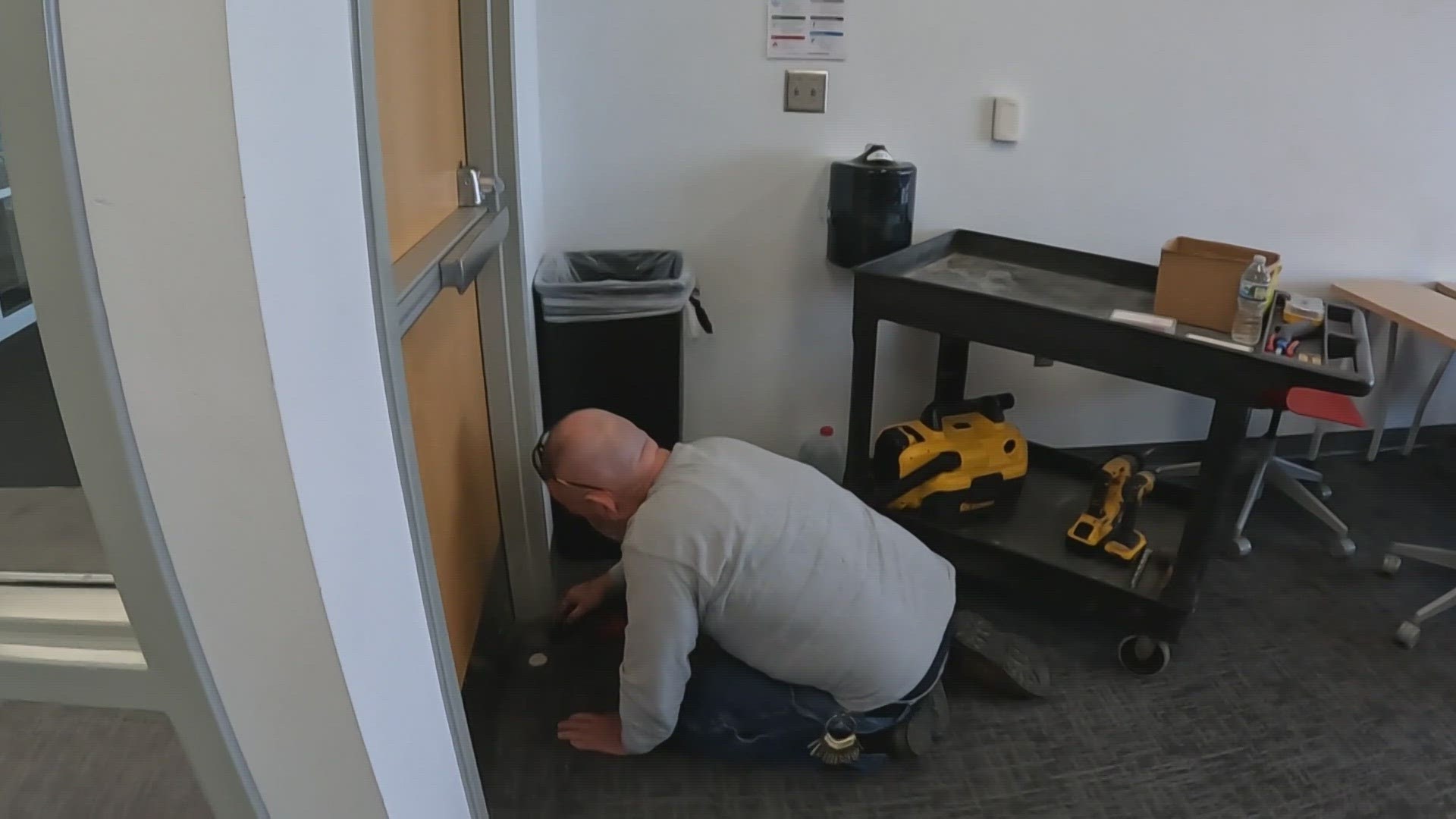INDIANAPOLIS — The University of Indianapolis is launching a new safety initiative to better protect every classroom door on campus.
The “NIGHTLOCK” door stoppers are a small metal plate that slides into a hole in the floor and locks the door.
The device can withstand thousands of pounds of pressure and prevent an intruder from getting through.
“This requires you to open a box and slide a pin into a hole. It doesn’t create some sort of 10-step process to try and put it in place. It puts it in place immediately,” said UIndy Chief Brandon Pate.
The idea was sparked by a student who was researching the security tool for a school project after becoming familiar with it from a previous job.
“I was sitting in class one day when I asked my professor, 'If someone were to come in right now, what would we do? Can we lock the doors?' She said, 'No,'" Henry said. “That made me sit there and think that if something were to happen, we really aren’t protected.”


The new mom and wife of an IMPD officer became passionate about changing that. So, she brought her idea to the school’s top cop.
“I was, like, you pretty much handed me a solution to a problem that was always on our radar, but it was down the road after we looked at the holistic approach to security,” Pate said.
After doing his own research, he was impressed – saying the device is simple yet effective. The university then ordered more than 200 locks. The total cost was about $13,000.
“I hope it sends two messages—we care about your safety, and we really want to hear what your ideas are,” Pate said.


Even though Henry is graduating this semester and won’t benefit from the security locks, she said that’s fine with her.
“I am hoping that once students find out what they are and how easily they are to use that it will definitely help them feel more protected,” she said.
The university said this first phase is focused on classrooms. After that, they plan to install more in office spaces and work rooms.

